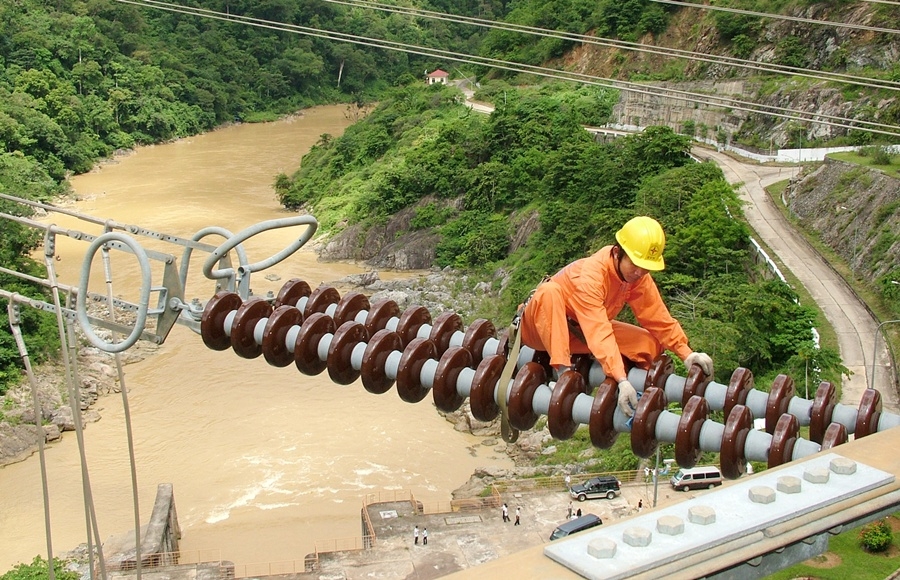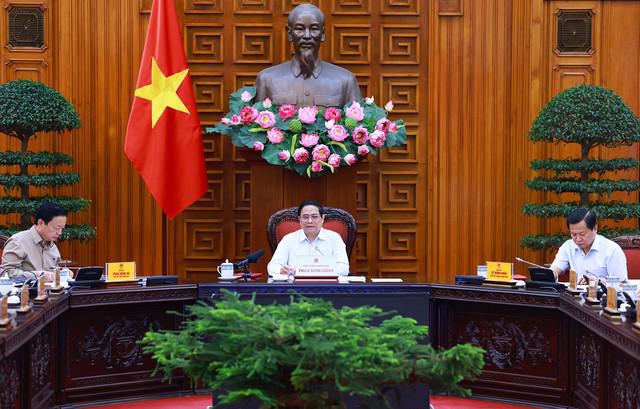Vietnam's Prime Minister Pham Minh Chinh on April 20 chaired a critical government meeting focused on securing a stable electricity supply across the nation throughout 2024.
The meeting's priority was addressing the peak demand of the hot weather season. The Prime Minister issued a firm directive: under no circumstances will a lack of electricity hinder production and business activities.
Electricity demand during the dry season (May to July) is forecast to grow significantly (up to 13%), far exceeding the planned 9.6% growth. The North is particularly concerning, with demand expected to increase by a record 17% over the same period in 2023.

Painful 2023 Summer
Last summer served as a stark reminder of the consequences of inadequate power infrastructure. Vietnam experienced power shortages that stemmed from a lack of investment in both power sources and the transmission grid itself.
These shortcomings also highlighted operational inefficiencies, with several electricity projects suffering from delays or suspensions altogether.
The consequences of these power shortages underscore the Vietnamese government's resolve to prevent a repeat of the situation in 2024.
To avoid supply disruptions, the Prime Minister has called on all relevant ministries, regional authorities, and associated organizations to develop comprehensive plans that can address even the most extreme scenarios.
These strategies must also emphasize personal accountability, maintaining resolve even in the face of unforeseen challenges, and exercising prudent forecasting to anticipate hurdles.
Measures for Stable Power Supply
A range of specific measures is targeted to ensure sufficient electricity supply in 2024. One major focus is enhancing the capability of existing electricity transmission infrastructure.
Additionally, the Ministry of Industry and Trade has been tasked with creating and carefully monitoring a dedicated electricity supply plan specifically for the high-demand, peak dry season months between April and July 2024.
Maintaining vigilant oversight of coal and gas supplies, critical fuels for power generation, is another crucial element in the government's plan.
To bolster transmission capacity, the rapid completion of the 500 kV Quang Trach - Pho Noi line takes center stage. Furthermore, Vietnam is building upon its energy resilience by ensuring that major oil, gas, and coal corporations commit to guaranteeing adequate fuel reserves for electricity production.
Meanwhile, the Ministry of Industry and Trade is establishing a month-by-month electricity supply roadmap to maintain transparency and manage demand effectively.
Crucially, Vietnam is aiming to diversify its power sources, actively exploring all viable options while accelerating the progress of large-scale power projects. Additionally, the country plans to finalize transmission projects in May 2024 that will facilitate the import of electricity from Laos, further enhancing Vietnam's energy security.
Zero Tolerance
The Vietnamese government's determination stems not only from the desire to avoid future shortages but also from a thorough examination of past failures.
Inspections conducted by the Ministry of Industry and Trade last year pinpointed several issues within EVN, the state-owned electricity provider.
These lapses include delays in power source and grid investments, insufficient management of fuel reserves, operational inefficiencies in the power system, and violations of operating guidelines that led to widespread disruptions in the Northern region last summer.
Consequently, serious reviews resulted in disciplinary actions against numerous individuals and collectives toward the end of last year.
This includes a reprimand for a Deputy General Director responsible for the power system and further reprimands for Directors and Deputy Directors at the National Power System Dispatch Center.
At the very top level, Mr. Nguyen Anh Tuan, former Chairman and CEO of EVN Hanoi, replaced Mr. Tran Dinh Nhan as CEO of Electricity of Vietnam from December 1, 2023, for the next five years.
The Vietnamese government's strong stance, proactive measures, and commitment to accountability demonstrate a resolve to learn from the shortcomings experienced in 2023.
By addressing past issues and prioritizing energy infrastructure and diversification, Vietnam aims to secure a stable electricity supply essential for its continued economic progress.









 Google translate
Google translate